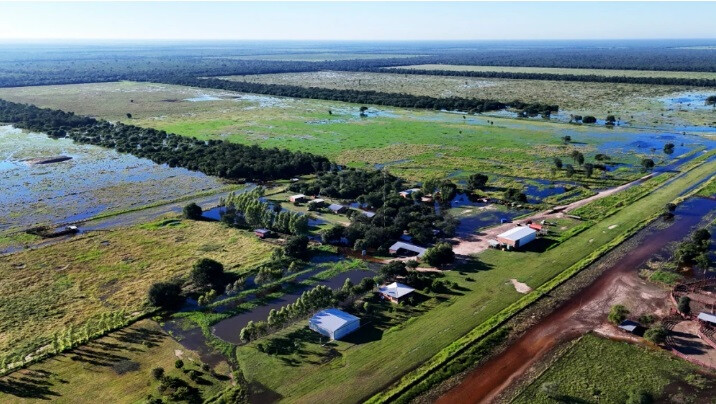
The livestock industry in Paraguay's Chaco region is facing a severe blow due to record-breaking heavy rains, raising concerns about rising beef prices both domestically and internationally. According to local media on April 22, 2025, the continuous heavy rainfall in the Chaco region is paralyzing road networks and creating difficulties in transporting cattle to slaughterhouses.
Miguel Reinau, former president of the Paraguayan Brangus Breeders Association, stated, "The situation in the Chaco region, including General Díaz, Margarita, and the Argentine border area, is very serious." He added that the overflowing Pilcomayo River and heavy rains have completely cut off roads, making access difficult even for four-wheel drive vehicles and tractors. These adverse weather conditions are also severely impacting the supply of feed and the sanitary management of livestock.
The heavy rains in the Chaco region are leading to a decrease in beef production, putting upward pressure on beef prices in domestic and international markets. Slaughterhouse operations have decreased to 50% of their usual level, affecting both the domestic and export markets. Paraguay exports beef to major countries such as the United States, Canada, Mexico, and Israel, and demand from these countries has been increasing recently. In particular, a price increase is expected for rib cuts, which are in high demand during the May festivities.
Industry experts predict that if the current weather conditions persist, beef prices are likely to remain high throughout the year. This is a result of a combination of internal factors (floods, paralyzed road networks) and external factors (high demand from major importing countries such as the United States). Furthermore, the livestock industry has been facing increased production costs over the past five years due to drought, including higher fuel, feed, and logistics costs, and these cost increases are inevitably likely to be passed on to consumer prices.
Paraguay is one of the world's leading beef exporters, with major export markets including Chile, Taiwan, and the United States. In 2024, it is expected to record the highest beef export volume in history. However, the current floods in the Chaco region are likely to cause a short-term setback in the Paraguayan beef export market.
[Copyright (c) Global Economic Times. All Rights Reserved.]






























